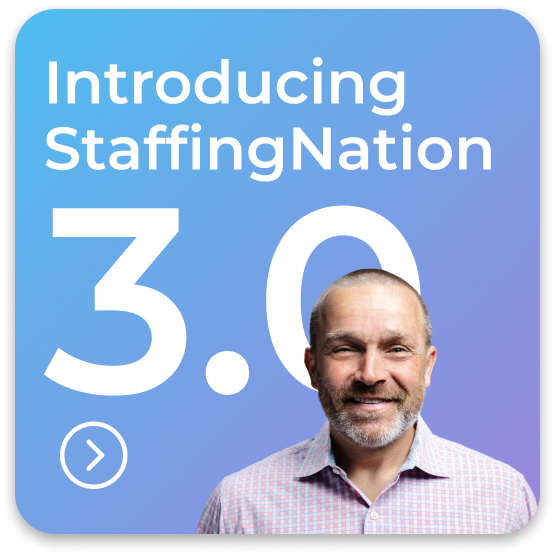Prescreening Updates
Effective January 1, 2024, those with workers in California and Washington will no longer be able to take adverse action against a worker for off-duty marijuana use. California’s AB2188 makes it unlawful for employers to discriminate against individuals through continued employment, hiring, and termination based on marijuana use. However, if the employer uses a test that does not detect non-psychoactive cannabis metabolites, and they find the worker is impaired while at work adverse action may still be taken. There are also exceptions for those in the construction and building industries. Washington’s SB5123 also indicates that, while adverse action cannot be taken for recreational use of marijuana outside of the workplace, the employer can still maintain their obligation to provide a drug free workplace under federal law. It also does not apply to testing outside of pre-employment testing such as a post-accident test.
The core aim of these laws is to prevent discrimination on the basis of using a legal substance, such as marijuana, outside of working hours.
AB 2188 can be found here: leginfo.legislature.ca.gov
New laws allowing the use of marijuana over the age of 21 will take effect in Maryland and Missouri; both state laws allow for the expungement of criminal records related to non-violent marijuana possession, which impacts pre-employment screening insofar as an organization can now determine whether or not to consider a non-expunged record for marijuana possession as part of their individualized assessment for a particular role.
Pay Transparency Changes
Pay transparency continues to be a hot topic in employment law in both the United States and abroad. New York joined the group of states requiring a salary range on all job postings effective 09/17/2023. State law now requires that a job posting include the salary or salary range that the organization believes will be paid to the chosen candidate at the time of hire and is applicable to any job that will be physically performed in NY State, including remote work performed by an individual residing in New York State, or out of state jobs that report to a NY State supervisor or manager. More information on the New York State law can be found here: dol.ny.gov
Hawaii, too, will require companies to include the hourly pay rate or salary range in job postings as of January 1, 2024. If using a range, it must reasonably reflect the actual expected compensation for the position.
Massachusetts’ Governor is expected to sign its pay transparency law (projected for early 2024). The law will be effective one year from the date of signing. This means that Massachusetts will be joining California, Colorado, New York, and Hawaii in requiring salary ranges on job postings. Companies in MA will also be required to disclose the pay range for the position to workers offered a promotion or transfer, and those workers currently holding the position as well as an applicant to the position upon request. This law also has reporting requirements, and those organizations with 100 or more workers in MA will be required to submit an EEO data report including workforce data and demographics such as job category, race, ethnicity, and sex.
Colorado, one of the first states to add pay transparency to their employment laws, made some significant amendments to their pay transparency regulations that take effect on 1/1/2024. These changes clarify that the law applies to organizations that only have remote workers in the state of Colorado, and added job opportunities that are subject to the Equal Pay for Equal Work Act notices. The good news is that job progressions or developmental promotions are no longer considered job opportunities under the law. Further, if the organization is outside of Colorado and has less than 15 remote workers within Colorado, only those job opportunities that are remote must be provided to the Colorado workers. Finally, job opportunity notices must now include the date the application window is anticipated to close. While the notice of career progression promotions is no longer required in Colorado, companies will now be required to make career progression requirements available to all eligible workers, including the terms of compensation, benefits, duties, and access to additional advancement.
More information on the changes to Colorado’s Equal Pay for Equal Work Act can be found here: cdle.colorado.gov
Have more questions on Pay Transparency? TCWGlobal is here to help!
Paid Leave Developments
California Paid Sick Leave
Effective January 1, 2024, the annual amount of California Paid Sick Leave raises from three days or 24 hours to five days or 40 hours for eligible employees. The California Paid Sick Leave accrual cap also increases from 48 to 80 hours.
Chicago Paid Sick Leave
Effective July 1, 2024, Workers will earn 1 hour of paid sick leave and 1 hour of paid leave for every 35 hours worked. Usage begins on the 30th calendar day of employment. Workers may accrue 40 hours per year of Paid Leave and 40 hours per year of Paid Sick Leave for a total of 80 hours. There is no cap on the maximum use per year. Sixteen hours of Paid Leave and 80 Hours of Paid Sick Leave may roll over. Any earned paid leave must be paid out at separation. Until July 1, 2024, Chicago workers will continue to earn one hour of only paid sick leave for every 40 hours worked.
Illinois Paid Leave
Effective January 1, 2024, Workers will earn one hour of paid leave to be used for any purpose for every 40 hours worked. Workers can accrue a maximum of 40 hours per year which rolls over year to year. Employers may limit the maximum rollover amount to 80 hours. Accrued but unused leave does not need to be paid out at termination.
Massachusetts Paid Leave
Effective November 1, 2023, workers in Massachusetts will be allowed to utilize paid time off (e.g., sick time, vacation time, etc.) to supplement the benefits from the state. Workers can choose whether to utilize this paid time off as a supplement. They still cannot be required to use it.
Minnesota Paid Leave
Effective January 1, 2024, workers in Minnesota will begin to earn 1 hour of paid sick leave for every 48 hours worked. The maximum accrual and usage per year is 48 hours, however, any unused may roll over year to year for a maximum accrual bank of 80 hours. Accrued, but unused sick leave need not be paid out at termination.
For more information about sick leave in 2024, check out our Sick Leave Cheat Sheet
Minimum Wage/Salary Exempt Changes
26 States and 20 local jurisdictions, including Puerto Rico, the City of LA, and various New York counties, will increase their minimum wage rate on January 1, 2024, for both salary-exempt and hourly non-exempt employees.
Australia's Fixed-Term Contracts
In Australia, fixed-term contracts are only getting more restrictive. Beginning January 1, 2024, employers must provide employees with a Fixed Term Contract Information Statement. Contracts may be at most two years total, including renewals and extensions. Consecutive fixed-term contracts lasting longer than two years collectively are not allowed. TCWGlobal will compliantly manage your fixed-term contracts in Australia and monitor developments in the ever-changing employment law landscape.
Superannuation will also be increasing in July 2024. More info
Employment Law Updates and Trends at Direct Entities
Overall Trends across the globe, continue to be requirements to ensure pay equity, pay transparency, and increased clarity for workers around holiday and other leave pay. Of note for the future, is the EU Pay Transparency Directive which was adopted in April 2023, and will go into effect in 2026 for employers of workers in EU countries, however many employers are opting to take a proactive approach in both maintaining the data and being more transparent in their job listings.
UK
There are changes to the rate at which holiday pay, including allowing the “roll up” of holiday pay into the worker’s wages for some workers, specifically those with irregular hours and seasonal workers. The proposal indicates that rolled up holiday pay must be at least 12.07% of the worker’s pay. This will not change the reference period for other statutory leave such as sick or maternity leave. There have also been amendments to the Equality Act of 2010 including a change to the definition of disability, which will now reference a person’s ability to fully participate in working life on an equal basis with other workers, rather than their ability to carry out day to day activities.
Canada
The Canada Revenue Agency has provided a new policy for determining a remote worker’s province of employment for payroll purposes, wherein the worker will change the province from the employer’s location “where the worker is paid” to the employer’s location “where the worker is reasonably considered attached.”
New termination entitlements for federally regulated employers effective 2/1/2024 include changes to the notice period required and a requirement to provide a statement of benefits outlining the worker’s right to vacation benefits, wages, severance pay and other benefits arising out of employment which must be provided either no later than two weeks before the termination, or if payment in lieu is provided, no later than the date of termination.
Effective January 4, 2024, employers in rail transportation, banking, telecommunications, and broadcasting will see changes to the Hours of Work Provisions surrounding unpaid breaks, rest periods between shifts, notice requirements for work schedule and shift changes. The exemptions vary by industry and the worker’s position.
Australia
Effective 1/1/2024, the National Employment Standards will include a right to superannuation contributions, which makes unpaid or underpaid superannuation enforceable under the Fair Work Act by more employees. Effective 4/2024 – there will be mandatory reporting on Gender Equity to governing bodies, new data reporting requirements and a new reporting requirement specific to sexual harassment or discrimination on the grounds of sex under the Workplace Gender Equality Amendment (Closing the Gender Pay Gap) Act.
New Zealand
Improvements to the Holiday’s Act include new methods that employers must use for calculating the amount of leave entitlement used by a worker when they take leave, new leave pay and formulas that provide greater clarity on what is used in the calculations, and new eligibility tests for Family Violence, Bereavement, and Sick Leave. All of these changes are to provide greater transparency to workers.
Puerto Rico
Changes to Act 54 on Domestic Violence will require employers to update their Domestic Violence in the Workplace policies to include “economic violence” defined as conduct that is aimed at undermining the victim’s present or future financial capacity, economic stability, or secure housing. This can be perpetrated in many ways and may include interference with a victim’s employment or business. Additionally, FLSA updates regarding salary level exemptions are likely to impact workers in Puerto Rico as well.





